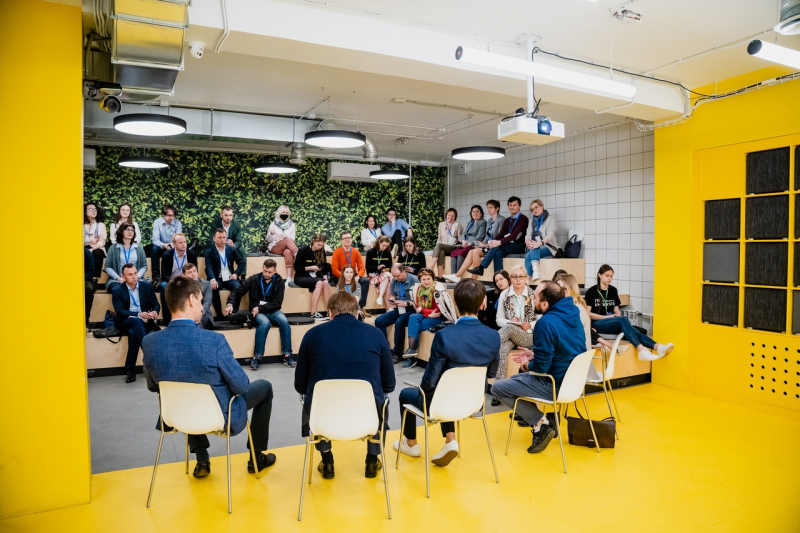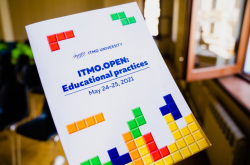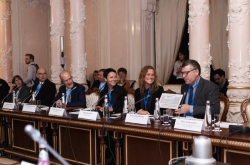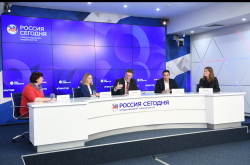The world is changing quickly, and universities must keep pace. A great deal of responsibility falls onto the deans, whose duty is to introduce innovations. In recent years, a number of young scientists have been appointed to the positions of deans and heads of labs at ITMO. The organizers of ITMO.OPEN: Educational Practices offered them a chance to meet and share with others some insights into how they develop their departments’ ecosystems.
“We would especially like to share with our colleagues the experiences of our most unconventional deans,” says Antonina Puchkovskaia, head of ITMO’s Digital Humanities Center, who served as the moderator of the discussion. “These are young specialists who can share the practices they use in their daily routine. When it comes to how educational programs function and how staff communicate with students – this is the frontier.”
Antonina Puchkovskaia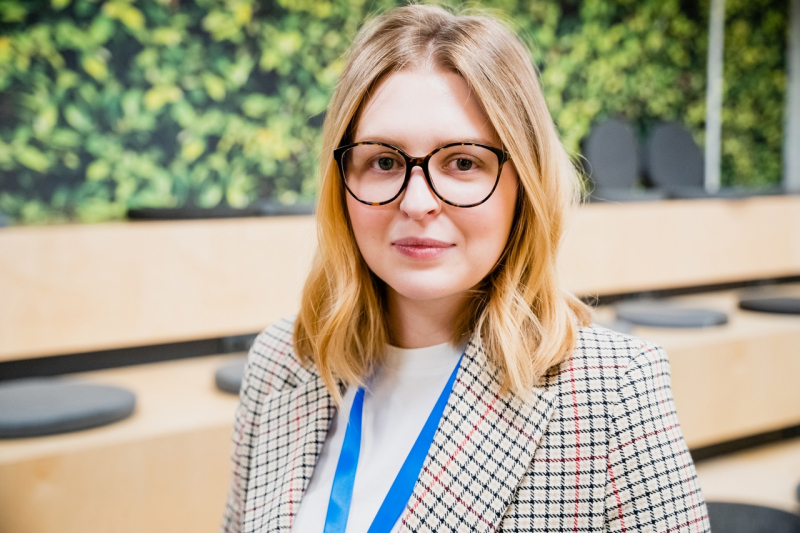
What makes a great dean
This topic was the starting point of the discussion – the participants were asked to explain what, in their view, differentiates a next-generation dean from the regular idea of a faculty head.
“To me, it’s probably a person who is transparent, not stuck in their ways, and ready to work directly with students,” shares Pavel Kustarev, dean of the Faculty of Software Engineering and Computer Systems.
Pavel Kustarev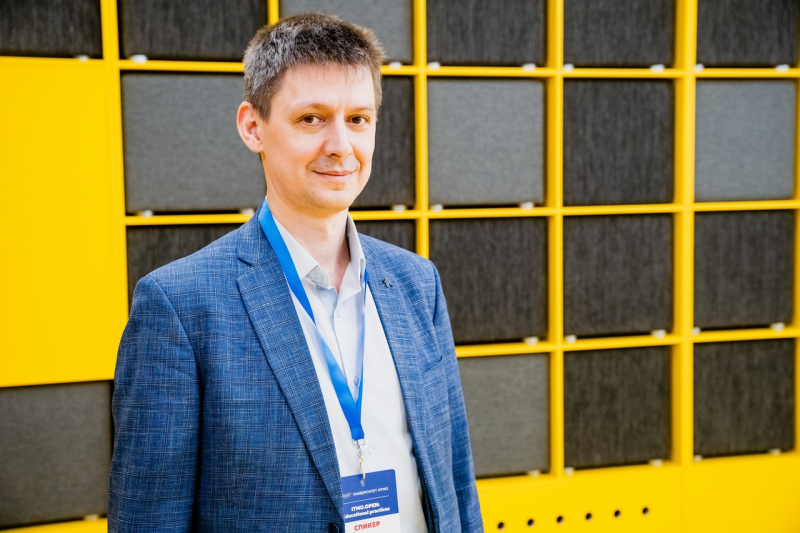
“It’s someone who, first and foremost, subverts the students’ expectations,” says Mikhail Kurushkin, dean of the Faculty of Biotechnologies. “And only then fulfills them.”
Mikhail Kurushkin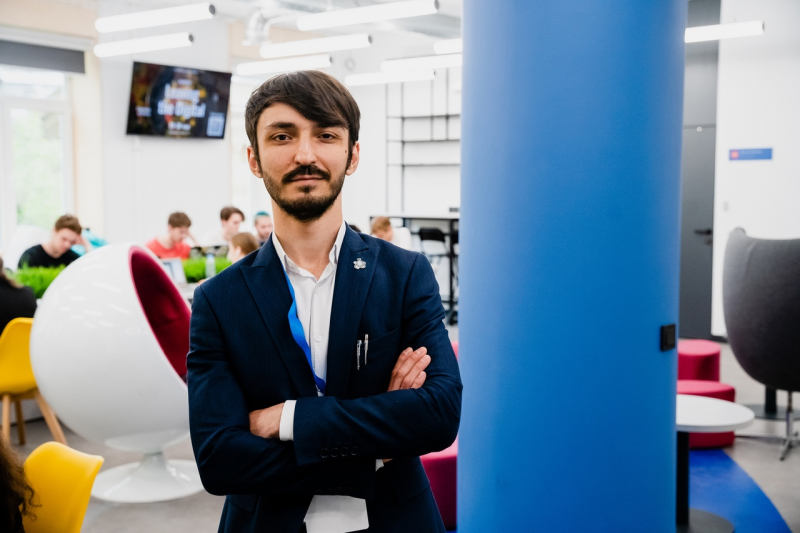
Alexandr Kapitonov, dean of the Faculty of Infocommunication Technologies, noted that a modern dean should delve deeply into the meaning of each issue that concerns their department.
“The threshold for matters in which you may participate is lowered greatly,” shares Alexandr. “You can make decisions on even the smallest issues, which are, nevertheless, very important, as they’re what defines life at the faculty.”
Alexandr Kapitonov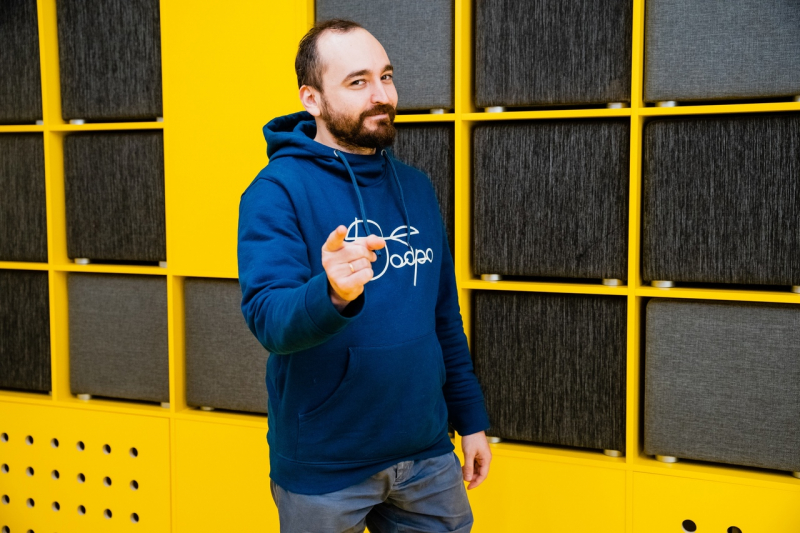
However, Vladimir Vinogradov, head of ITMO’s SCAMT Lab, believes that in today’s reality, students might not even know their dean at all – as long as all research and educational processes run smoothly.
“I’ve had some Bachelor’s students from the School of Computer Technologies and Control come by to do an interdisciplinary project,” he recalls. “So I asked them where they’re from. They told me what their program was and I asked who their dean is. That made them stumble. They really didn’t know! I believe that, in that case, the dean does their job perfectly: there are talented, motivated kids who enroll in programs and receive top-tier education; the lecturers are ambitious and involved in massive, global projects; meanwhile, the dean is stealthily fostering the proper environment by attracting the right kind of people to the faculty.”
Vladimir Vinogradov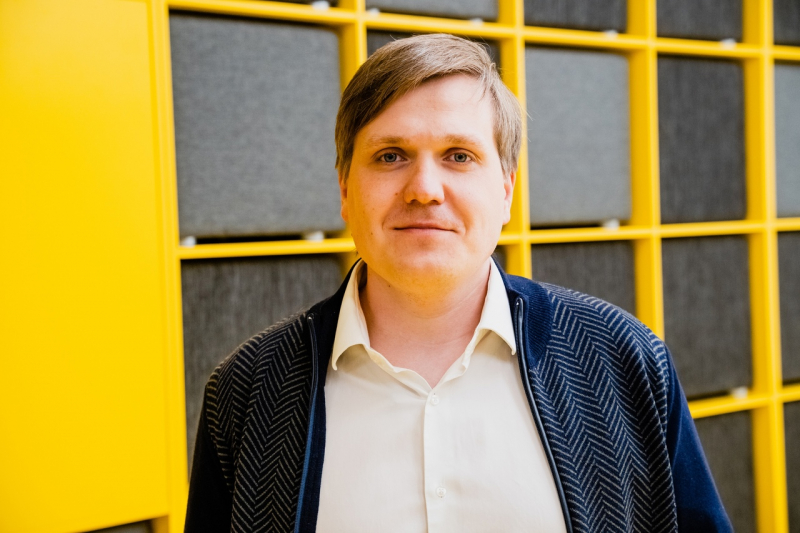
Communication
The internet and social networks are among the best tools of today’s deans. For instance, Alexandr Kapitonov has spent more than a year now running a YouTube channel where he talks about science, shares news from his faculty, and even provides suggestions on which TV shows and books students should check out.
“Social networks are a must have, a vital part of our job, and an element of corporate ethics,” says Alexandr. “Each of our courses has its own chat room where you can discuss various administrative or educational issues. As a result, the students often start helping each other by answering their peers’ questions, thus making the staff’s work easier.”
It’s important to remember, stresses Pavel Kustarev, that communication with the students is important for the dean, too.
“If you want to speak your students’ language, you need to talk to them,” he says. “To attract them to the university and motivate them in their studies, you need to be accessible to students. You can’t talk in a “wisened,” lofty tone, or they won’t hear you. But you can’t oversimplify it, too, or you’ll end up a caricature. A dean’s goal is to identify the things the importance of which the students will only realize in 10 or 20 years – and then tell them about these things in a way they can understand.”
At the rountable discussion on the role of deans in today's higher education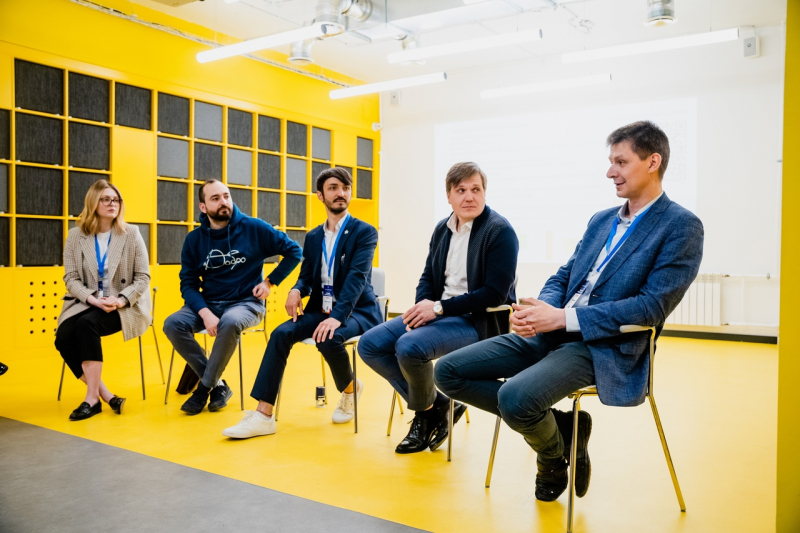
“It’s extremely important to be relatable so that the students can identify with you,” adds Mikhail Kurushkin. “That’s one of the key conditions for a healthy atmosphere at the faculty.”
Pressing issues
A key section of the discussion was dedicated to questions from the conference’s guests. Many touched on complicated topics. One question concerned the generational change: how does one find balance between new areas of growth and the traditional schools of knowledge – especially when acclaimed scientists don’t welcome these changes?
“It’s important to find an individual approach here,” notes Mikhail Kurushkin. “We pay attention to every employee and, naturally, want everyone to be involved in resolving issues. But a faculty should function according to a specific model that can be tinkered with, but can’t be swapped out entirely. And that should be understood by everyone, even big-name renowned scientists.”
According to Alexandr Kapitonov, students can be of great help in the matter. Student feedback can be a signal for lecturers – that changes are needed – as well as administrators – that the chosen course must be adjusted.
At the rountable discussion on the role of deans in today's higher education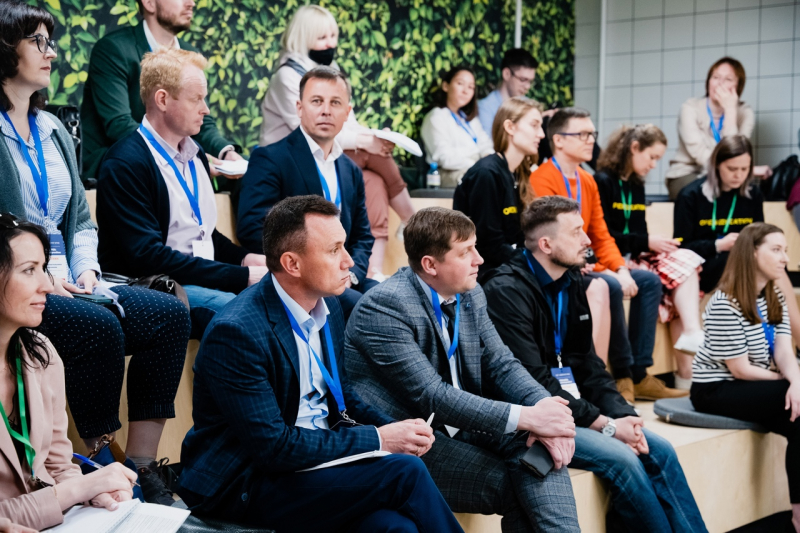
The participants also wondered whether these practices and techniques are just as applicable in small provincial universities that don’t enjoy as much funding, applicants, or recognition.
“This is a question we hear often,” notes Vladimir Vinogradov. “There are no universal tools, but nevertheless it’s definitely possible to grow in those conditions. Don’t be afraid to try something new and then go back to square one and start again. Progress must be made free of stereotypes and cliches that only pull us down below.”
An unavoidable question concerned the Unified State Exam (USE) and whether its scores correspond with students’ subsequent performance levels: their eagerness and desire to learn and their level of commitment and involvement in university life. The speakers’ opinions were divided. Alexandr Kapitonov believes it an example of an inverse relationship: applicants with scores in the 240-270 range have paid more attention to working on their projects than preparing for USE. At the same time, they are immensely motivated to explore and discover new ideas.
At the rountable discussion on the role of deans in today's higher education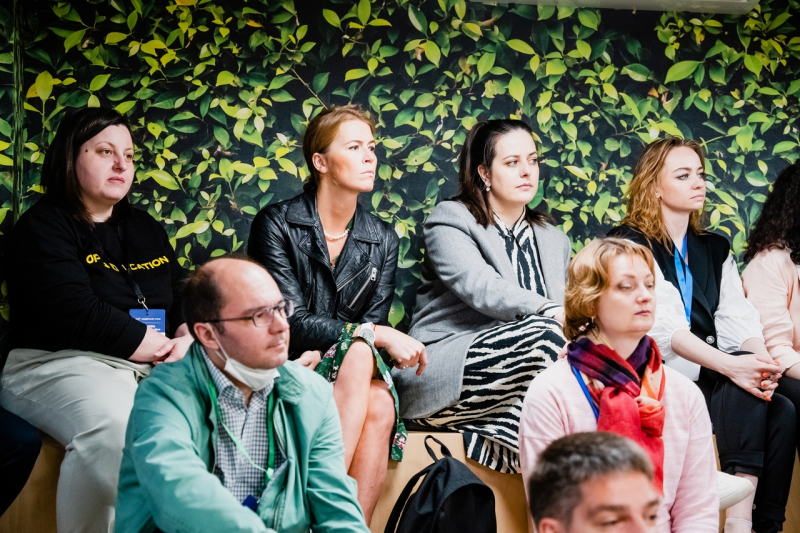
Pavel Kustarev, on the other hand, insists that universities must gravitate towards students with the highest scores.
“I’d compare this to a football team. If you’re putting a team together and you say that you need active, inspired athletes who don’t run so well – that’s just weird. USE scores are honest; they are an indicator of the potential that the university can help unlock. A lecturer’s mastery is in knowing how to wind a straight-A student and motivate them to work. If that happens, the results will likely be much better than those of a student with mid-range scores. There are, of course, exceptions, but they are relatively few.”
Our values
As the discussion concluded, Antonina Puchkovskaia expressed her opinion that it was a successful one, as it accomplished its main goal: to share with the event’s participants the values shared by ITMO University staff and students.
“It’s about openness, transparency, a lack of hierarchy for the sake of it, horizontal connections,” noted Antonina. “It’s using modern technologies and messenger apps to talk to students. It’s important to make students’ voices and needs visible and then use that to reimagine programs, tracks, and everything else.”
The ITMO.OPEN: Educational Practices conference took place at ITMO University on May 24-25. Among its participants were approximately 200 lecturers, heads of educational programs, deans, and rectors from across Russia. Its goal was to facilitate discussion about today’s top trends in Russian higher education.
